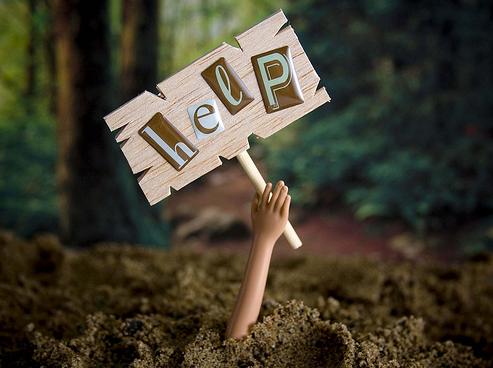
image from ANVRecife
Will the financial crisis wake us up to the climate crisis?
It may be difficult to see how the two are related, but this week we’ve learned that Americans were so concerned with how much money they had at Wall Street’s closing bell that they didn’t hear the floundering stock market’s warning bells.
Those bells fell on deaf ears, and the environment is especially telling when it comes to how deaf we’ve become: We were so concerned with the price at the pump that we missed how much we are consuming at the expense of the environment. Sound familiar?
Unless the United States starts addressing global warming now, we might have to spend $700 billion to bail out the planet, too. But $700 billion is a nice figure compared to the $19 trillion estimate from the European Commission.
The subprime mortgage crisis came from short-term thinking. The number of subprime mortgages increased dramatically from 1990 to 2000, mostly from increased competition from online lenders, according to the Home Buying Institute. This meant that lenders had to broaden their scope and give loans to people who usually would have been turned away because of bad credit scores or previous foreclosures.
So the quest to make an extra buck is going to cost the entire country a few hundred billion.
As usual, the truth is in the numbers. The number of home foreclosures in the United States has climbed year by year. So far in 2008, about 1.4 million homes have been foreclosed on. But 1.2 million homes were foreclosed on in 2006, and the economy survived that.
The media (finally) did their math and are ringing the alarm bells. But when the same information is presented to them about global warming, why do they seem to ignore it?
When Jim Hansen, a researcher at NASA who is known for his testimony to Congress about climate change in the 1980s, visited the University Sept. 22, he nearly spoon-fed the alarm bells to the audience. He said that we’ve passed the safe level of carbon dioxide in the atmosphere and that we are approaching the point of irreversible changes. No country in the world has taken steps to drastically reduce its carbon emissions, and we keep burning fossil fuels even when we’re told we are doing harm to the entire planet.
So why isn’t anyone talking about this?
Because global warming can’t put up foreclosure signs around the neighborhood, we don’t seeing anything in our backyards yet. And unfortunately by the time we do notice, it will be far too late. We see distant problems — the Arctic ice cap melting, a higher rate of species extinction and higher global temperatures — but it’s difficult to relate those problems back to the individual.
Just like in the subprime crisis, only when the for-sale signs started to appear did people start wondering. And only then did we realize how far back the problem went.
With the defeat of the House bill two days ago, Americans are finally starting to realize that we can’t just keep thinking in the short-term when dealing with problems that affect the entire nation.
Now, how long will we remember it?
originally published in The University Daily Kansan on Oct. 1, 2008. Click the link for the print edition.
